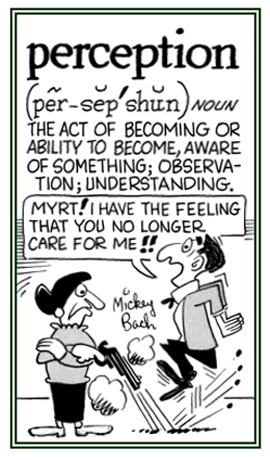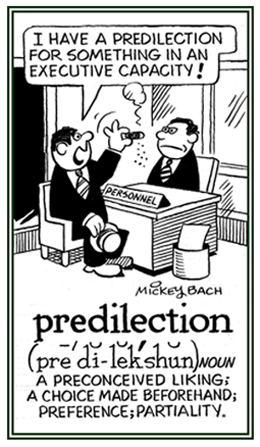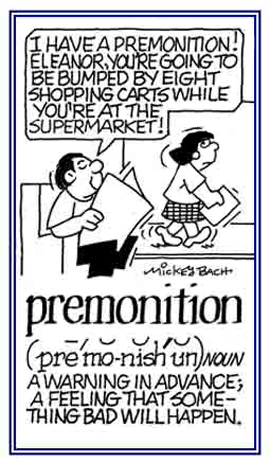-tion
(Latin: a suffix forming nouns from verbs of condition and action; an act or process: resumption, absorption; state or condition, redemption, exhaustion; something resulting from or otherwise related to an act or process, assumption, friction)
This unit is presenting a small fraction of the hundreds of words ending with the suffix of -tion; however, there is a significant number of words which may help everyone have a better understanding and appreciation of the use of this element.
obstruction (s), obstructions (pl) (noun forms)
1. Something which blocks a path, passage, door, etc. so that it is difficult or impossible for someone or something to move along or through it.
2. The act of causing a delay or an attempt to cause a delay in the conduct of business; especially, in a legislative body.
3. An act of blocking or hindering someone or something: "There must be an obstruction in the drainpipe because the water will not go out of the tub."
2. The act of causing a delay or an attempt to cause a delay in the conduct of business; especially, in a legislative body.
3. An act of blocking or hindering someone or something: "There must be an obstruction in the drainpipe because the water will not go out of the tub."
partition
parturition
Taking in through the senses or the mind, awareness, insight, or intuition: The mother's perception of her son's needs was different from those of the father's ideas.

© ALL rights are reserved.
Go to this Word A Day Revisited Index

Go to this Word A Day Revisited Index
so you can see more of Mickey Bach's cartoons.
perfection
persecution (noun)
1. A formal message requesting something that is submitted to an authority or a written request signed by many people demanding a specific action from an authority or government.
2. A reverent petition to a deity or an appeal or request to a higher authority or Being.
3. A request formally made in writing including something requested or appealed for.
4. Etymology: "a supplication" or "prayer"; especially, to a deity"; from Old French peticiun which came from Latin petitionem, petitio, "a request, a solicitation"; from petere, "to require, to seek, to go forward".
2. A reverent petition to a deity or an appeal or request to a higher authority or Being.
3. A request formally made in writing including something requested or appealed for.
4. Etymology: "a supplication" or "prayer"; especially, to a deity"; from Old French peticiun which came from Latin petitionem, petitio, "a request, a solicitation"; from petere, "to require, to seek, to go forward".
The Latin word petere "to seek", from which petition is derived, is also the source of the English words which appear in this unit.
pilojection
The introduction of hair into an aneurysm to promote obliteration by producing thrombosis in the aneurysm.
potion
A liquid, or liquid mixture; especially, one that is medicinal, poisonous, or magical; such as, a love potion or a sleeping potion.
1. The action of foretelling future events, also an instance of this; a prophecy: The gossipy ladies made a prediction that Susan, the orphan daughter of their friend, would marry within the year.
2. A statement that is made before something actually happens: The newspaper published a prediction that gold would be found on the remote island, and it proved to be true!
2. A statement that is made before something actually happens: The newspaper published a prediction that gold would be found on the remote island, and it proved to be true!
predigestion (noun), predigestions (pl)
The partial artificial absorption of food before swallowing it: Some canids, like wolves, are known to hunt and eat what they catch, and then, following the process of predigestion and returning to their dens, regurgitate what they have eaten and feed their pups.
1. A special liking or preference for something: Jim's son and daughter each had a predilection for adventure stories.
2. A tendency to think favorably of something in particular; a partiality: Kate has a predilection for rich desserts after each lunch and dinner.
3. Etymology: from Latin praedilectus, prediligere, "to prefer before others"; from prae-, "before" + diligere, "to choose, to love"; also from French predilection, "before others."

© ALL rights are reserved.
Go to this Word A Day Revisited Index
2. A tendency to think favorably of something in particular; a partiality: Kate has a predilection for rich desserts after each lunch and dinner.
3. Etymology: from Latin praedilectus, prediligere, "to prefer before others"; from prae-, "before" + diligere, "to choose, to love"; also from French predilection, "before others."
Based on diligent which came from dis-, "apart" + legere, "to choose".

Go to this Word A Day Revisited Index
so you can see more of Mickey Bach's cartoons.
The replacement of one thing for something else: Many radio listeners complained about the excessive preemptions that were taking place instead of the regular programs.
1. A forewarning; a prior warning or notification: Jack remembers that before the earthquake took place, his two dogs were restless and greatly disturbed, as if they had premonitions that a shaking in the area was about to happen.
2. A feeling about a situation or an event before it takes place: Martin Luther King presented a speech consisting of premonitions of his death just days before he was murdered in 1968.

© ALL rights are reserved.
Go to this Word A Day Revisited Index
2. A feeling about a situation or an event before it takes place: Martin Luther King presented a speech consisting of premonitions of his death just days before he was murdered in 1968.

Go to this Word A Day Revisited Index
so you can see more of Mickey Bach's cartoons.
1. A word that indicates or shows the relationship between its object (the noun or pronoun following it) and other words in a sentence: The most common prepositions show direction, as "through the door", time, as"during his sleep", and possession, like "with Susan's mother".
In the sentence, "Please put the glass on the table", the word "on" is a preposition that indicates the relationship of the "glass" with the "table".
In "It will be time to catch the train in one hour", "in" is the preposition.
2. A word that, when combined with pronouns, nouns, or noun phrases, indicates a position in time or spaces, motions, agencies, relationships, or purposes: Prepositions govern their objects by deciding which words or phrases their objects may be associated with. "The houses by the road were all sold yesterday." "Road" is the object of the preposition and "by" determines that "road" will be associated with "houses". 3. Etymology: from Latin praepositionem, praepositio, "a putting before", from praepositus, past participle of praeponere, "to put before"; from prae, "before" + ponere "to put, to place, to set".

